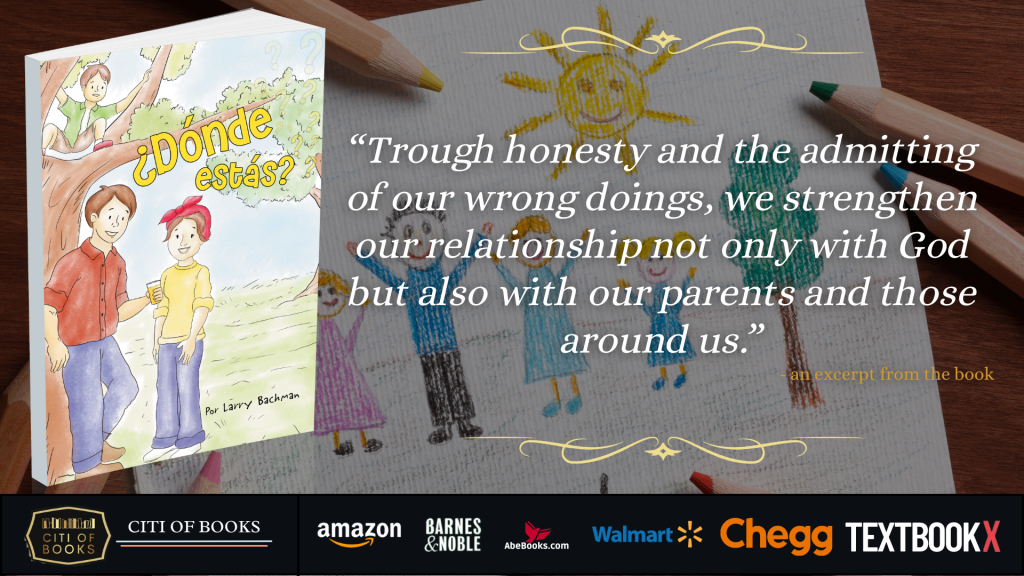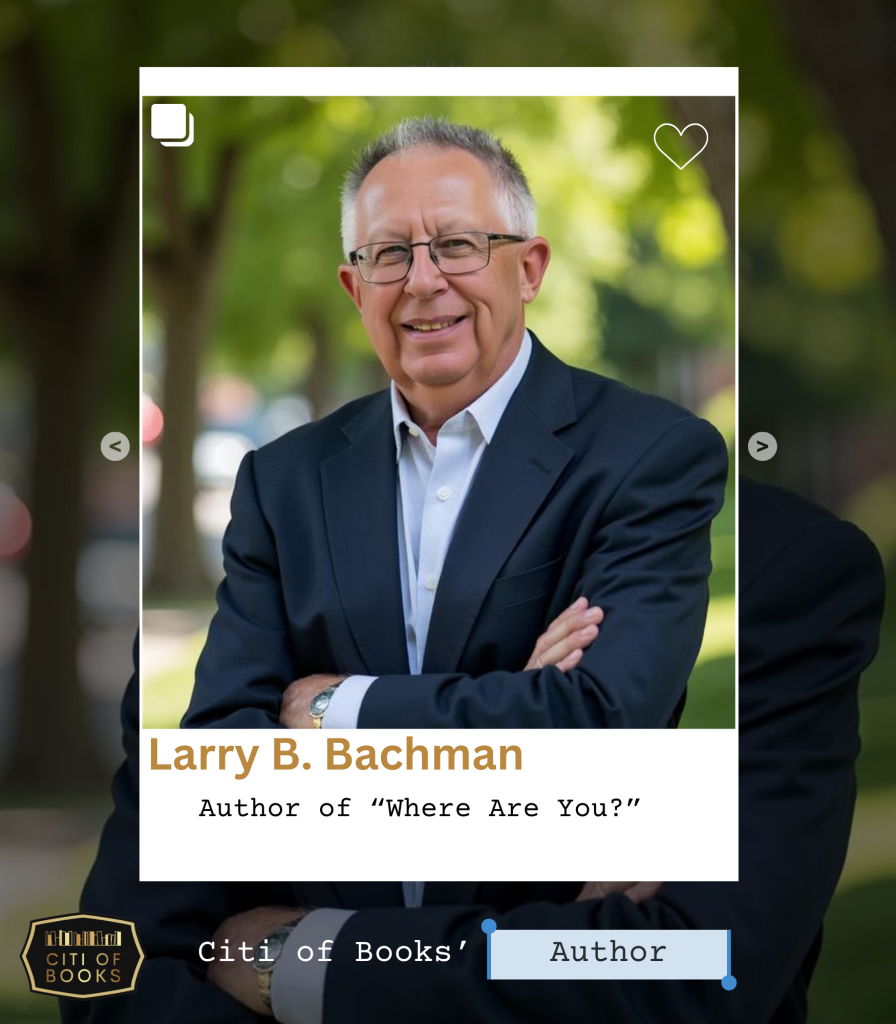
“Where Are You? (Spanish Edition)” is a heartfelt and humorous story told from the perspective of a young boy, around eight or nine years old, who gets caught up in a moment of innocent curiosity and creativity. Proudly published by Citi of Books, this is now available on Amazon, Barnes & Noble, and other major retail platforms.
Larry Bachman is no stranger to farm life. He was born and raised in the countryside of Pennsylvania and became the owner of the local, small-town newspaper. Eventually, life took him away from the picturesque serenity of the country. After chasing the dream and leaving his roots behind, Larry finally came back to his country “home”—fifty years later. As he says, “You don’t know what you’ve got till it’s gone.”
Currently, he lives in De Kalb, Texas, where he uses his practical life skills in homesteading. He attends the De Kalb Seventh-day Adventist Church, and in his spare time he enjoys spending time with his family and exploring nature.
In “Where Are You? (Spanish Edition),” while his mom is painting the kitchen, he’s fascinated by her work and ends up sneaking a chance to “help” while she answers a phone call. He turns a smiley face she painted on the wall into a full character—adding a nose, ears, hands, and even hair with finger paint. However, in doing so, he creates a big mess: paint ends up on the walls, the floor, his clothes, and even the cabinets. Realizing he’s in trouble; he panics and runs away to hide in a tree.
From his hiding spot, he overhears his parents calmly discussing the situation and eventually hears his mom calling out to him with understanding and concern, not anger. This moment reflects a turning point, emphasizing love, forgiveness, and trust even after disobedience.
The story draws a parallel with the Biblical account of Adam and Eve in Genesis when God asks, “Where are you?” after they disobey Him. The central moral is that while mistakes and mischief are part of growing up, honesty, responsibility, and the willingness to return—both physically and spiritually—are what restore relationships. The story reminds us that even when we mess up, forgiveness is possible through grace, and we are always invited back home with love.
It’s a beautifully simple yet profound lesson on grace, accountability, and the power of unconditional parental (and divine) love.

“Where Are You? (Spanish Edition)” by Larry B. Bachman is now available for purchase through the links provided below:
- AbeBooks: https://www.abebooks.com/Where-Spanish-Edition-Bachman-Larry-B/32146531369/bd
- Amazon: https://www.amazon.com/Where-Are-Spanish-Larry-Bachman/dp/B0DZDQDRBW/ref=sr_1_1?dib=eyJ2IjoiMSJ9.73KeRKPFL5gbTcGIUxCjj45w0l1WXQXe3b3fEbAr4WM.W9WnUM80b3qTEyUp1qO5ikj4LYr5p1DZjBnWDdus_zo&dib_tag=se&keywords=Where+Are+You%3F+%28Spanish+Edition%29+Larry+Bachman&qid=1745524407&sr=8-1
- Barnes & Noble: https://www.barnesandnoble.com/w/where-are-you-larry-b-bachman/1147095521?ean=9798893915457
- Citi of Books: https://citiofbooks.com/bookstore/motivational-inspirational/where-are-you-spanish-edition/

